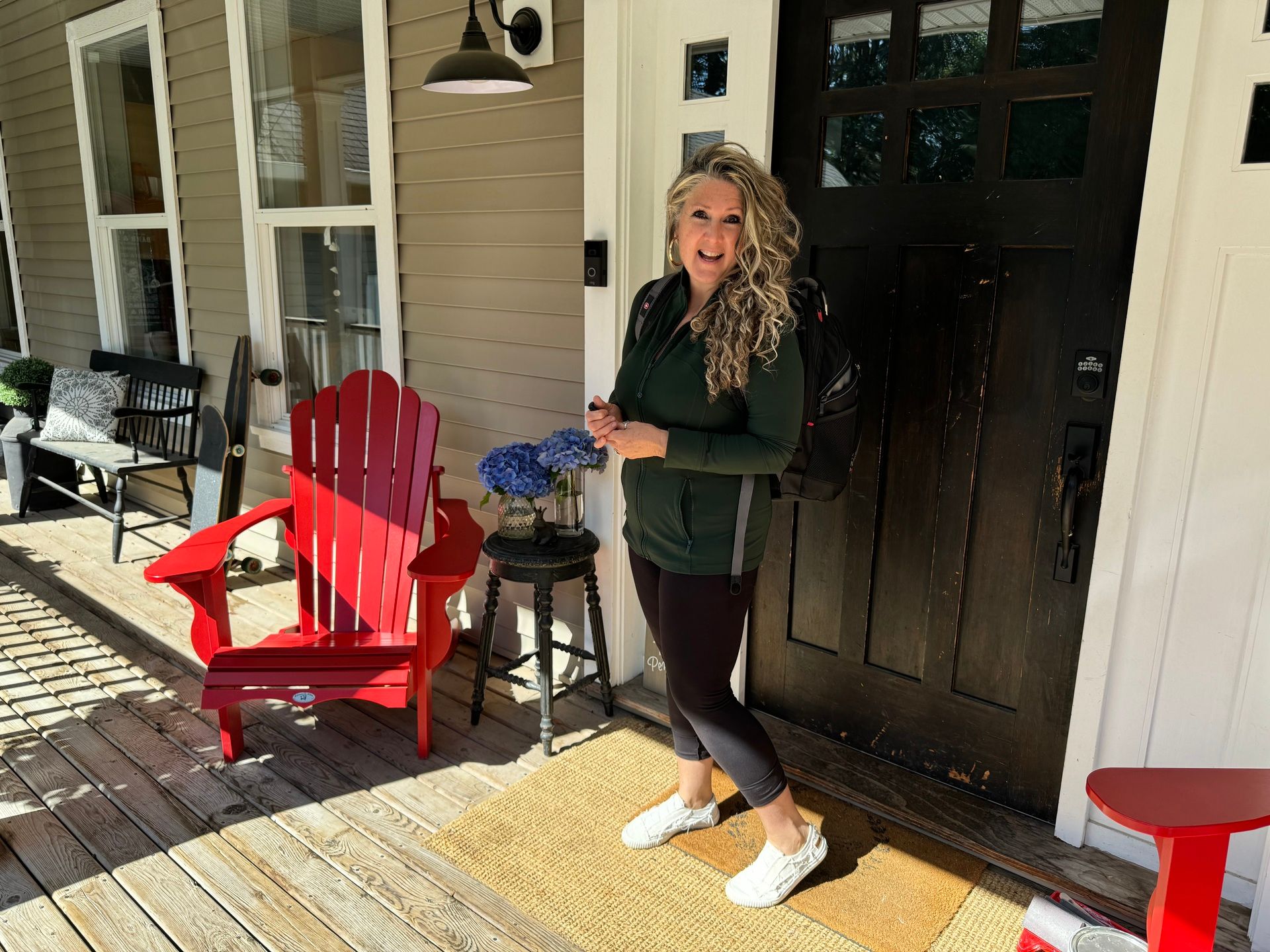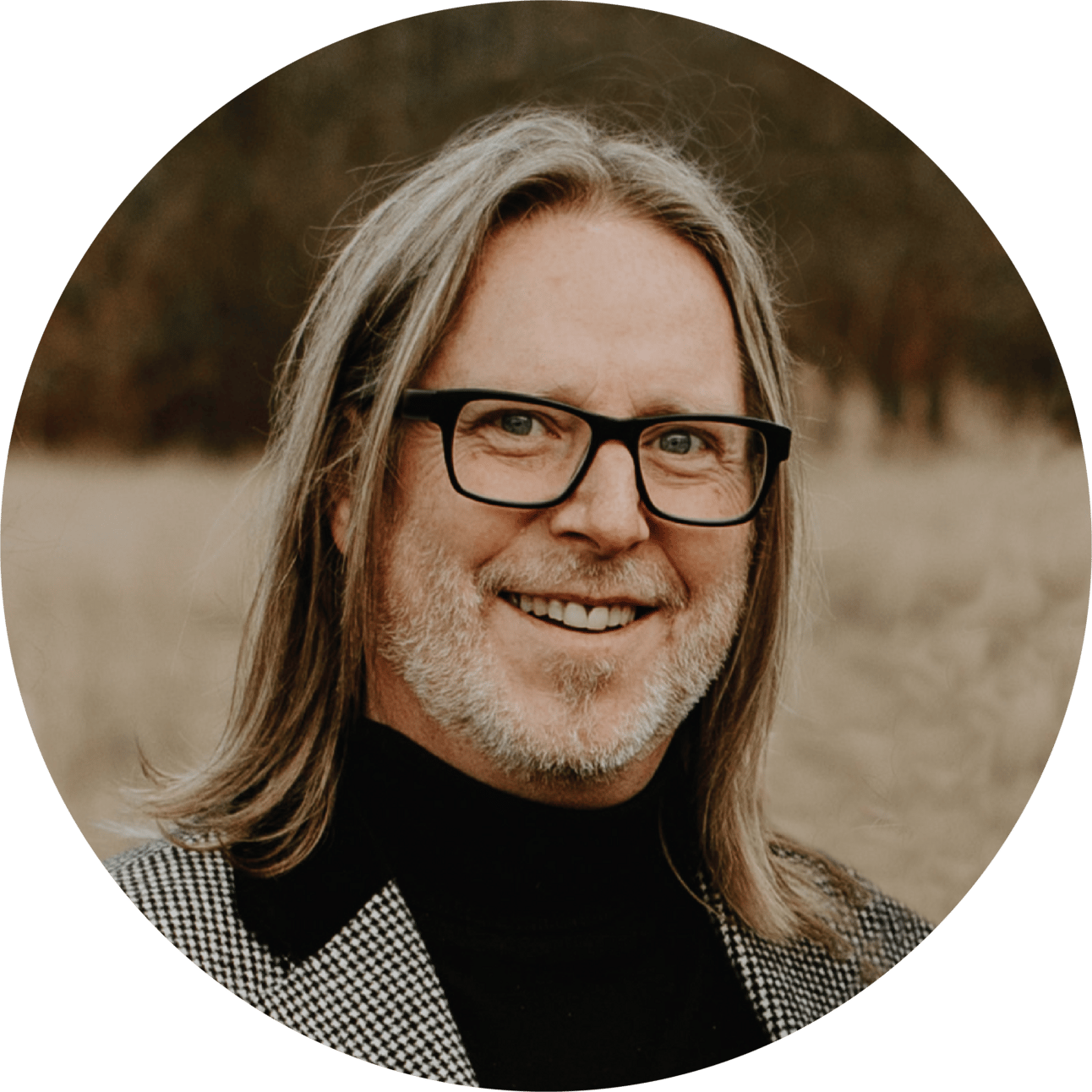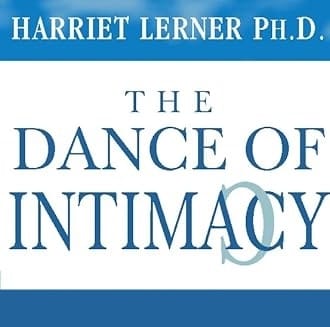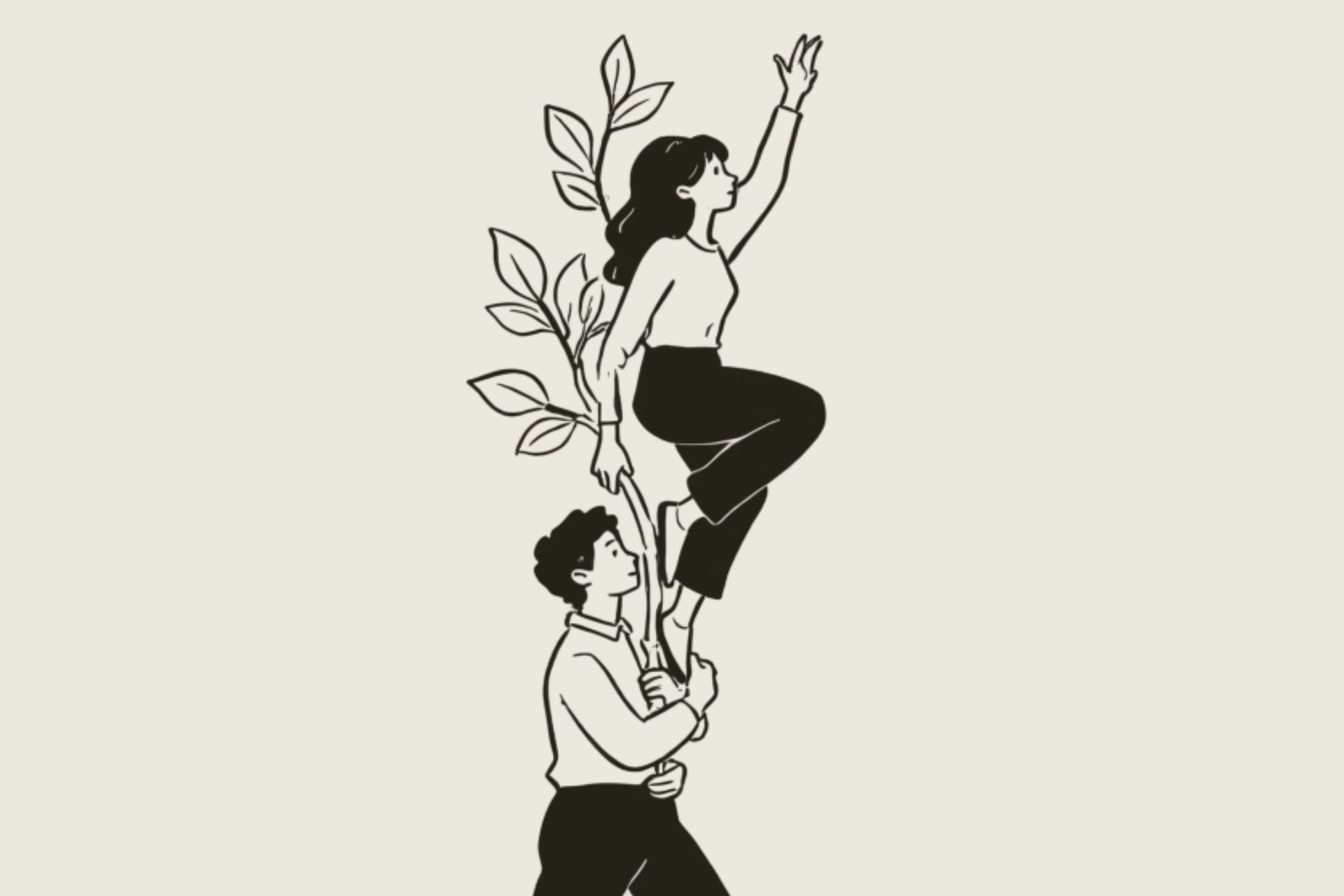When Teresa first told me she was thinking about going back to university for her master’s in social work, my heart did that thing where it swelled with pride, then immediately started looking for the emergency exits.
She’d been encouraged by Irene—a long-time friend and mentor who put herself through university while raising kids and is now one of the most respected trauma therapists in Greater Vancouver. She still works circles around people half her age, and when someone with that kind of lived wisdom says, “This is yours to do,” you pay attention.
It was a gift.
A clear path.
A wide-open door.
On paper, Teresa’s return to school looked beautifully straightforward: a woman pursues her passion, her family applauds, and everything falls into place. But life doesn’t happen on paper. It didn’t take long for the voices in my head to shift from celebration to loss. Vacations we wouldn’t take. Bike rides we’d miss. Dinners we’d decline because she’d be drowning in case studies. At thirty, I would have called it “a good choice.” At sixty, it felt like a slow puncture in the tire of the life we’d worked so hard to build.
And so began the roller coaster. One minute I’m the banner-waving husband, yelling “You’ve got this, Teresa!” The next, I’m sitting at home alone, grieving the small absences: the road trips, the café meet-ups, the easy togetherness that now comes rationed. I am both her biggest cheerleader and, if I’m honest, the one quietly keeping tabs on the cost. Pride and loss, joy and resentment—taking turns in the driver’s seat.
That’s the unvarnished truth about growth: it never stays politely in its own lane. It barges into places you counted on, rearranging routines you’d grown fond of. Sometimes it feels like an amazing gift. Sometimes it feels like I’m being robbed. Most days, it’s a bit of both.

Teresa’s first day heading back to University
Why Growth Feels So Unsettling
Here’s the upsetting and wonderful thing about personal growth: when one person grows, the whole relational system shifts.
Maybe your spouse decides to start eating vegan, and suddenly your nachos feel like contraband. Or your best friend gives up drinking, and you find yourself staring into your glass like it’s whispering secrets about your character. Or your coworker starts running half-marathons, and you suddenly hate them just a little, while also resenting the elevator for being broken when you can barely make it up the stairs.
We want to be happy for the people we love when they grow—and often we are—but their change unsettles us more than we expect. It doesn’t just alter their trajectory; it disrupts ours. Psychologists call this systems theory: relationships function like ecosystems. When one part of the system changes, the rest of the system has to adapt. And being conscripted into change we didn’t choose rarely feels comfortable.
Behavioral economists Daniel Kahneman and Amos Tversky found that we experience losses about twice as intensely as gains. That imbalance shapes how we respond to others' growth. A partner’s degree, promotion, or new habit may objectively be a good thing, but our brains are wired to notice what it subtracts from our shared life before it can appreciate what it might add.
Which is why I can know, rationally, that Teresa’s degree will be a gift to her and to the people she’ll serve—while still finding myself fixated on the missed vacations, the lonely bike rides, and the small rituals of togetherness we’ve had to set aside.
The cost-benefit timing is skewed. We count the costs in real time, while the benefits often take months or years to show up.
And then there’s comparison, that tiny emotional raccoon that sneaks in through the attic and rummages through your self-worth. Research says we compare ourselves most to the people closest to us, which is a real paradox, honestly. Because I am so proud of Teresa—yet somehow her brave leap into university after more than thirty-five years shines a spotlight on all the dusty corners of my own stuck places.
Growth doesn’t ask permission. It shows up uninvited, disrupts routines, and forces us to notice things we’d rather ignore. And yet—if we let it—growth also opens a window. Fresh air comes in. And we realize someone else’s expansion doesn’t diminish us; it stretches us, if we’ll let it.
So how do you stay grounded when someone else’s growth shakes things up?
How We’re Learning to Navigate This Season
As I reflect on this season, it feels like we’ve been invited into a parallel curriculum of relational growth, alongside Teresa’s university program. We’re learning to navigate this change in ways that hold both of us—naming the pain, acknowledging the loss, and responding differently than we used to.
We’re tending to the small places where resentment might try to grow. We’ve built simple practices that support each of us and help preserve our connection even as life rearranges itself. We haven’t always done this well in our 36 years of marriage. And it’s still not perfect. But so far, here’s what we’ve found helpful.
1. Count the cost — and refuse to minimize the loss.
Before the first class even began, we sat down and named everything that would change—the connection time we’d lose, the routines that would disappear, the trips we’d pause, the energy university would consume. Not to dramatize it, but to face it honestly.
And we’re still doing that now—continuing to name the losses as they show up. It doesn’t make the change easier, but the explicit and shared acknowledgement keeps resentment from sneaking in through the cracks.
2. Acknowledge the fears — and protect what matters.
Teresa honored my fear of losing connection. She didn’t dismiss it or label it as insecurity. She acknowledged it with compassion, and together we began creating fresh rhythms that foster connection despite all the new pressures on our time.
And we keep doing this—adjusting, renegotiating, protecting our “us time” as a shared priority. Connection isn’t hers to maintain or mine to cling to. It’s ours to guard, and we’re still learning how to do that well.
3. Build a relief valve — and spare each other the residue.
One of the best decisions we made early on was this: when things got hard for me—when I felt the anxiety or ache of change—I wouldn’t hand Teresa the unregulated, raw version of it. I’d bring it to a mutual friend who supports her and understands me. Someone who
hears my frustration, concerns, and even anger at times,
helps me filter fleeting emotion from meaningful insight,
and guides me toward sharing only what truly needs to be said.
And this practice continues to steady us. It protects Teresa’s heart and our relationship from the emotional shrapnel that can fly when I vent without regulating myself first. No unnecessary residue. No accidental casualties.
4. Remember: this isn’t “her growth” or “my sacrifice” — it’s our season.
We keep coming back to this truth: it isn’t her leap or my loss—it’s our season. Our stretch. Our awkward two-step into a new rhythm. Some days she carries more. Other days I do. And most days, we’re learning the dance in real time—supporting each other while trying to keep our own footing..
We aren’t doing this to each other; we are doing it for each other. With care. With intention. With as much grace as we can muster. And honestly, that shared commitment is what’s kept us upright.
What This Season Is Teaching Me
Beyond these practical relational steps, here’s what I didn’t expect: Teresa’s commitment has also reshaped mine. Where I might have been content to coast some evenings, her discipline makes me want to use my time more intentionally. It’s prompted me to reflect more, to sort through what truly matters in the work we share. And it’s nudged me into doing things I might once have handed off to her.
At times it’s been tough, but it’s slowly teaching me that her growth doesn’t just create gaps to fill—it creates room for me to grow, too.
There’s no tidy bow here. I’m still hanging on for the ride—cheering wildly one moment, grieving quietly the next. But if I had to name what’s holding us together, it’s this: love is not about pretending growth is painless. It’s about choosing to carry the weight of each other’s becoming, even when it feels heavier than you thought it would.
Love isn’t just cheering for someone’s “becoming”—it’s learning how to “become” alongside them.
Somehow, in the swirl of textbooks, schedules, adjustments, and honest conversations, I’ve found myself not just supporting Teresa’s growth—but grateful for the ways it’s growing me too.
Until next week,
Jonathan Penner | Co-Founder & Executive Director of LifeApp


Resources To Dig Deeper

Video
When Your Partner Tries To Stop You Growing
This video explores how partners often cling to outdated versions of each other—and how that can create tension when one person begins to grow or evolve. It explains that while familiarity feels safe, it can also trap people in identities they’ve outgrown. When a partner says, “You’re not the kind of person who likes that,” they may be using old information to protect themselves from the fear that change brings. The video invites us to see each other as continually evolving, to stay curious rather than threatened, and to welcome each new version of the person we love instead of insisting they remain who they once were.
-The School of Life (8:00)

Book
The Dance of Intimacy
Drawing on family systems theory, Harriet Lerner explains why couples often pull each other back into old roles when one person starts to grow, and how patterns like distancing, pursuing, over-functioning, and emotional triangles keep relationships stuck. Lerner offers practical tools for staying steady, setting healthier boundaries, and supporting each other’s evolution without losing connection. It’s a powerful roadmap for both men and women who want to maintain closeness while navigating the inevitable changes that come with personal growth.
-Dr. Harriet Lerner

Music
Grow As We Go
This song speaks directly to the tension between change and connection. It gently dismantles the myth that growth requires distance—that becoming ourselves means stepping away from the people we love. Instead, the song imagines a kind of love that can hold change rather than fear it: “You can change right next to me.” It names the truth that neither person is finished, that both are still learning, still becoming, still figuring out how the river bends. And it offers this simple, tender vision of partnership: when one ebbs, the other can flow; when one rises, the other can hold steady. The beauty isn’t in growing apart—it’s in growing alongside each other, slowly, honestly, and with room for both lives to expand.
-Ben Platt (4:38)

